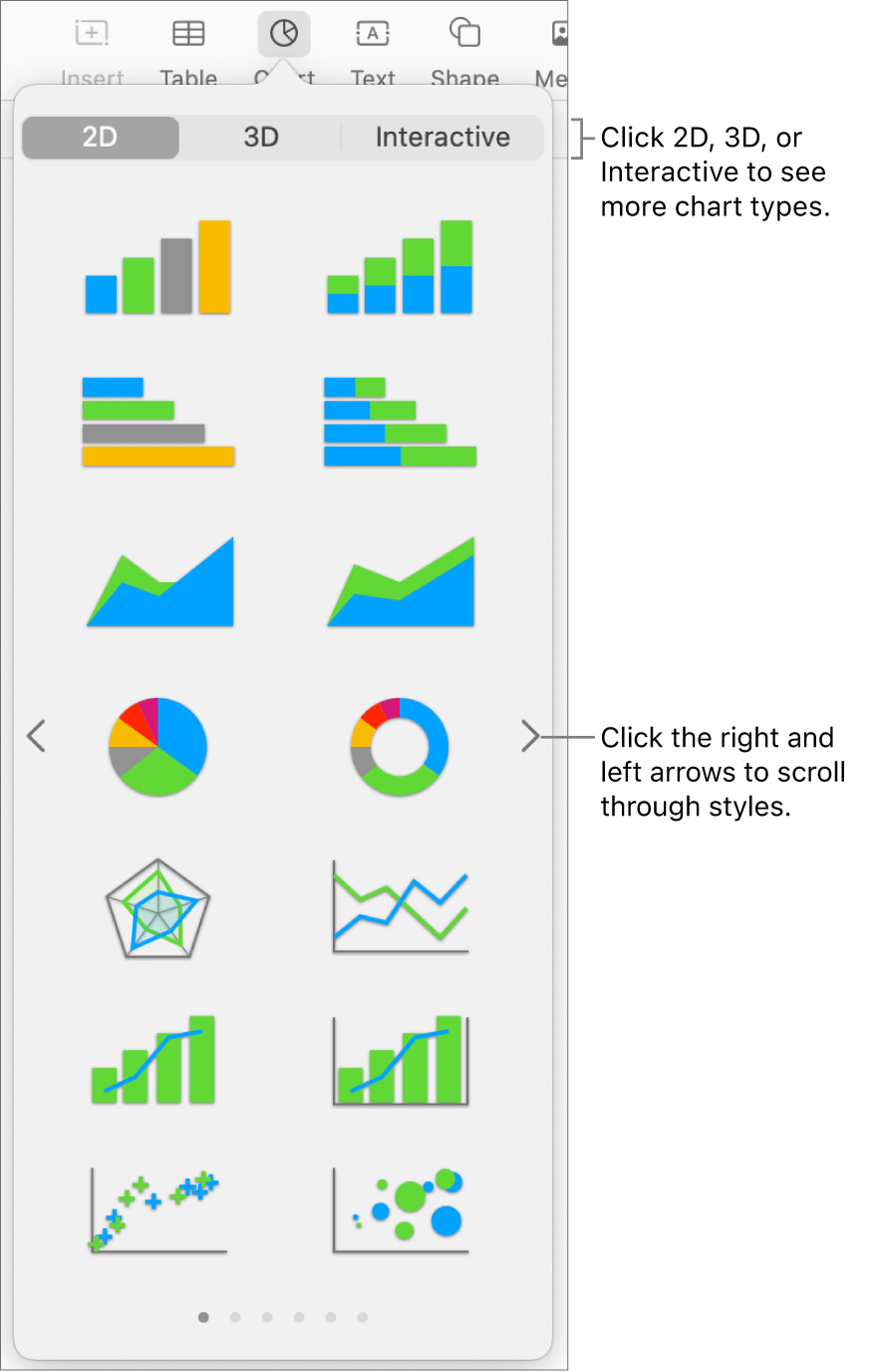
Add column, bar, line, area, pie, donut, and radar charts in Numbers on Mac
To create any type of chart, you can add a chart to a sheet first, then select the table cells with the data you want to use. Or, you can select the data first, then create a chart that displays the data. Either way, when you change the data in the table, the chart updates automatically.
In Numbers, you can import a spreadsheet with charts from Microsoft Excel. The imported charts might look somewhat different from the original, but the data they display is the same.
Tip: You can learn about different chart types in the Charting Basics template. To open it, choose File > New, click Basic in the left sidebar, then double-click the Charting Basics template. In Charting Basics, click the tabs near the top of the template to view the different sheets; each one explains a different type of chart.
Create a column, bar, line, area, pie, donut, or radar chart
Click
 in the toolbar, then click 2D, 3D, or Interactive.
in the toolbar, then click 2D, 3D, or Interactive.Click the left and right arrows to see more styles.

Note: The stacked bar, column, and area charts show two or more data series stacked together.
Click a chart or drag it to the sheet.
If you add a 3D chart, you see
 at its center. Drag this control to adjust the chart’s orientation.
at its center. Drag this control to adjust the chart’s orientation.Click the Add Chart Data button near the selected chart (if you don’t see the Add Chart Data button, make sure the chart is selected).
Select the table cells with the data you want to use.
You can select cells from one or more tables, including tables on different sheets. While you’re editing a chart’s data references, a dot appears on the tab for any sheet that contains data used in the chart.
To change whether rows or columns are plotted as a data series, choose an option from the pop-up menu in the bar at the bottom of the window.

Click Done in the bar at the bottom of the window.
You can change the data reflected in the chart at any time. To learn how, see Modify chart data in Numbers on Mac.
